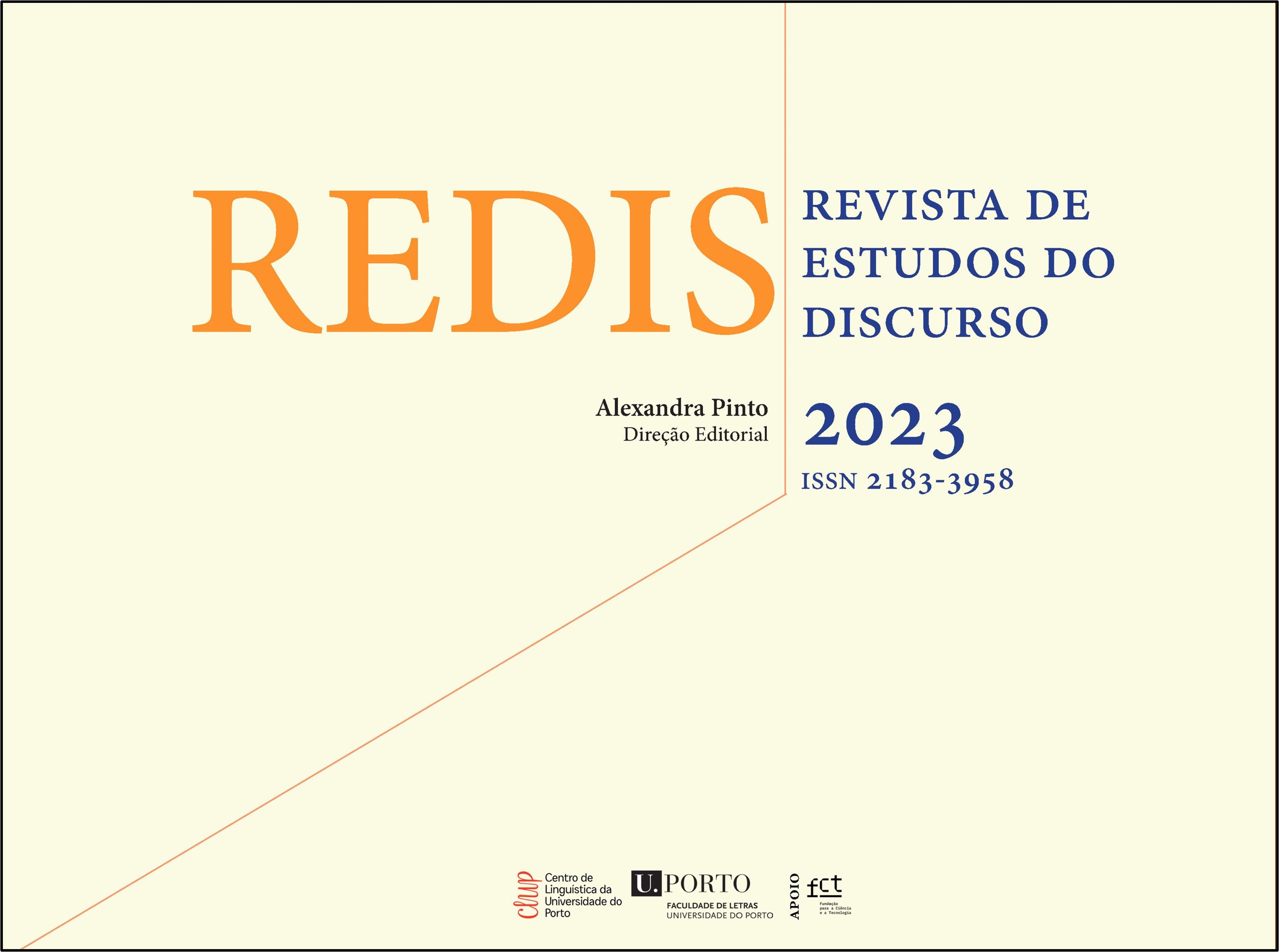Discursos do 25 de Abril: percurso histórico de um género político
DOI:
https://doi.org/10.21747/21833958/red13a7Palavras-chave:
25 de abril de 1974, Género, Historicidade, Argumentos narrativosResumo
Com a aproximação dos 50 anos do 25 de Abril, encetou-se a realização de um estudo exploratório sobre um género político vinculado à História de Portugal: o discurso do Presidente da República inserido na sessão solene comemorativa da Revolução dos Cravos. Partindo do pressuposto que, durante a produção de um texto, outros textos são reproduzidos e revisitados, respeitando a tradição do género, procedeu-se a um trabalho de análise diacrónica dos discursos produzidos de 1977 a 2023. Na linha do Interacionismo Sociodiscursivo, todo o texto tem de ser enquadrado num género e na atividade social que o motiva, pelo que, neste estudo, se faz uma abordagem aos componentes externos (local de produção, finalidades, intervenientes, etc.), antes da análise de elementos composicionais. Neste artigo discutem-se os resultados da análise qualitativa a um corpus composto por 20 discursos, com enfoque nos elementos formais, linguísticos e estilísticos, assim como no papel das sequências narrativas em termos argumentativos. Verifica-se a repetição de temas, nomeadamente a reflexão crítica e a rutura, de estruturas articulatórias (paralelismos anafóricos) e da sequência narrativa como ponto de partida para a construção de argumentos por analogia.
Referências
PITA, S. (2023). Plano de texto de “mensagens de natal” na cena política luso-brasileira. DELTA 39 (2), https://doi.org/10.1590/1678-460X202339253754
ADAM, J.-M. (2008). A linguística textual: introdução à análise textual dos discursos. São Paulo: Cortez.
AMOSSY, R. (2006). L’argumentation dans le discours. Paris: Armand Colin.
BEX, F. & BENCH-CAPON, T. (2017). Arguing with Stories. Narration as Argument. Madrid: Springer, pp.31-46. https://doi.org/10.1007/978-3-319-56883-6_2
BRONCKART, J.-P. (1999). Atividade de linguagem. Textos e discursos. São Paulo: EDUC.
BRONCKART, J.-P. (2004). Les genres de textes et leur contribution au développement psychologique. Langage, 38.e année, n.º 153 (Les genres de la parole), pp. 98-108. Acedido em 05 de junho de 2023, de http://www.persee.fr/docAsPDF/lgge_0458-726x_2004_num_38_153_938.pdf
CHARAUDEAU, P. (2016). A conquista da opinião pública: como o discurso manipula as escolhas políticas. São Paulo: Contexto.
COSERIU, E. (1979). Sincronia, diacronia, história: o problema da mudança linguística. Rio de Janeiro: Presença / Universidade de São Paulo.
COSERIU, E. (1980). Lições de Linguística Geral. Rio de Janeiro: Ao Livro Técnico.
EEMEREN, F., GROOTENDORST, R. & HENKEMANS, A. (2002). Argumentation: Analysis, Evaluation, Presentation. New York: Routledge.
FAIRCLOUGH, N. (2001). Teoria social do discurso. Discurso e mudança social. Brasília: Editora Universidade de Brasília. pp. 89-131.
KABATEK, J. & SIMÕES, J. DA S. (2005). Sobre a historicidade de textos. Linha D’Água, (17), pp. 157-170. https://doi.org/10.11606/issn.2236-4242.v0i17p157-170.
KABATEK, J. (2006). Tradições discursivas e mudança lingüística. Novos dados, novas análises, Tomo II. Salvador, Bahia: EDUFBA, pp. 505-527.
MARQUES, M. A. (2014). Palavra de Presidente: construção da autoridade presidencial nos discursos de Abril. Forma breve, pp. 297-311. Acedido em 15 de novembro em https://proa.ua.pt/index.php/formabreve/article/view/5416
PLANTIN, C. (2002). Analyse et critique du discours argumentative. Après Perelman: quelles politiques pour les nouvelles rhétoriques? Paris: L’Harmattan.
TINDALE, C. (2017). Narratives and the Concept of Argument. Narration as Argument. Madrid: Springer, pp.11-30. https://doi.org/10.1007/978-3-319-56883-6_2
SILVA, P. (2016). Género, conteúdos e segmentação: em busca do plano de texto. Diacrítica. Revista do Centro de Estudos Humanísticos; série ciências da linguagem, 30 (1): 181-224.
WALTON, D., REED, C. & MACAGNO, F. (2008). Argumentation Schemes. Cambridge: Cambridge University Press.
Downloads
Publicado
Como Citar
Edição
Secção
Licença
Direitos de Autor (c) 2023 Sara Pita

Este trabalho encontra-se publicado com a Licença Internacional Creative Commons Atribuição 4.0.
Os autores cedem à REDIS: Revista de Estudos do Discurso, o direito exclusivo de publicação dos seus textos, sob qualquer meio, incluindo a sua reprodução e venda em suporte papel ou digital, bem como a sua disponibilização em regime de livre acesso em bases de dados.




